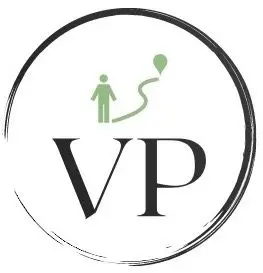2020 Works Read
Our year of 2020 was challenging. Still, this year, I maintained my annual goal for the past ten years of finishing one literary work a week, equaling at least 52 books. Below is my list for 2020, but stick around to the end to see more detailed thoughts on a few specific books:
- A Slice of Trust, by David Hutchens & Barry Rellaford (02/2020)
- The Inner Ring, by C.S. Lewis (02/2020)
- Silence, by Erling Kagge & Becky L. Crook (02/2020)
- Just As I Am: The Autobiography of Billy Graham, by Billy Graham (02/2020)
- Matterhorn: A Novel of the Vietnam War, by Karl Marlantes (03/2020)
- Warrior Ethos, by Steven Pressfield (03/2020)
- Darth Plagueis, by James Luceno (03/2020)
- The Didache, by Father R. Joseph Owles (03/2020)
- The White Shirt: Find Your Peaceful and Life-giving Career at Any Stage of Life, by Michael Alan Tate (03/2020)
- On Death, by Timothy Keller (03/2020)
- On Birth, by Timothy Keller (03/2020)
- On Marriage, by Timothy Keller (03/2020)
- The Search for God and Guinness: A Biography of the Beer that Changed the World, by Stephen Mansfield (03/2020)
- Talking to Strangers: What We Should Know about the People We Don’t Know, by Malcolm Gladwell (03/2020)
- The Grief Recovery Handbook, by John W. James and Russell Friedman (03/2020)
- Piercing the Darkness, by Frank Peretti (04/2020)
- To Be a Christian: An Anglican Catechism, by the Anglican Church in America Catechesis Task Force (04/2020)
- God Gave Wine: What the Bible Says About Alcohol, by Kenneth L. Gentry Jr. (04/2020)
- John Newton: From Disgrace to Amazing Grace, by Jonathan Aitken (04/2020)
- How to Be Rich: It’s Not What You Have. It’s What You Do With What You Have, by Andy Stanley (04/2020)
- The Cross of Christ, by John Stott (04/2020)
- The Internet of Money, by Andreas M. Antonopoulos (04/2020)
- Addicted to Mediocrity: 20th Century Christians and the Arts, by Franky Schaeffer (04/2020)
- Under the Black Hat: My Life in WWE and Beyond, by Jim Ross with Paul O’Brien (04/2020)
- Gilead, by Marilynne Robinson (05/2020)
- The Westminister Confession of Faith and Catechisms with Proof Texts, as adopted by the Presbyterian Church of America (05/2020)
- Roll Up Your Sleeves, by Michael Allen Tate (05/2020)
- Streams of Income, by Ryan Reger (06/2020)
- The Ballad of Songbirds and Snakes (A Hunger Games Novel), by Suzanne Collins (07/2020)
- The Black Swan, by Nassim Nicholas Taleb (07/2020)
- On Writing: A Memoir of the Craft, by Stephen King (07/2020)
- Jesus in the Old Testament, by Iain M. Duguid (08/2020)
- Heaven, by Randy Alcorn (08/2020)
- The Insanity of God, by Nik Ripkin (08/2020)
- Uncommon Ground, by Tim Keller and John Inazu (09/2020)
- The Elements of Style, by William Strube Jr. and E.B. White (09/2020)
- The Insanity of Obedience: Walking with Jesus in Tough Places, by Nik Ripkin (09/2020)
- Allegiant (Divergent Series: Book 3), by Veronica Roth (09/2020)
- Side Hustle: From Idea To Income In 27 Days, but Chris Guillebeau (09/2020)
- The Outward Mindset, by The Arbinger Institute (09/2020)
- Make Your Bed, by Admiral William H. McRaven (09/2020)
- A Ring of Endless Light, by Madeleine L’Engle (11/2020)
- The Gospel According to Peanuts, by Robert Short (12/2020)
- The Joker: A Celebration of 75 Years Graphic Novel Set (12/2020)
- A Promised Land (Presidential Biography), by President Barack Obama (12/2020)
- The Reason: How I Discovered A Life Worth Living, by Lacey Sturm (12/2020)
- Every Waking Hour: An Introduction to Work and Vocation for Christians, by Benjamin T. Quinn and Walter R. Strickland II (12/2020)
- The Children of Men, by P.D. James (12/2020)
- Every Good Thing: An Introduction to the Material World and the Common Good for Christians, by David W. Jones (12/2020)
- Batman Eternal Graphic Novel Set Vol. 1 (12/2020)
- What the Dog Saw: And Other Adventures, by Malcolm Gladwell (12/2020)
- Preparing for Licensure and Ordination Exams, by Bryan Chapell and Him Meek (12/2020)
- The One Minute $ales Person: More Sales in Less Time with Less Stress, by Spencer Johnson and Larry Wilson (12/2020)
As with prior years, here are my reflections and themes from my readings in 2020:
A Promised Land (Presidential Biography), by President Barack Obama:
For the past three Presidents, whenever a Presidential autobiography releases, I try to read the latest work. I always notice when I read their autobiographies, it is just how much we don’t know about their decision making and thought process. With 24-hour cable news, we feel we know everything, but each entry has shown me that we do not know what we think we know. President Obama’s autobiography continued that lesson was no different. Sure, it was written from his perspective and with his biases, but so is every Presidential autobiography, no matter your political persuasion. Pointedly, his perspective on his decisions taught me a lot about how I viewed his Presidency at the time.
Even when he was President, I would encourage people to call him “President Obama” not just “Obama.” It was partly due to my military background, somewhat because I respected the Office, and I didn’t default to believing every conspiracy theory about him. However, I admit some things I still bought into that despite his slant on his eight years in Office. Despite my political stances, I (and all of us) were still far too judgmental as he was trying to better America. And while I’m glad he didn’t get the chance to fulfill all his goals, I do think Conservatives stood in his way on areas where we all would have benefited. There is nothing wrong with standing up for what one believes in. Still, his book reminded me that people focused on too many false narratives, baseless claims, and straight out lies during his Presidency.
His book stopped when the raid on Osama Bin Laden occurred. Meaning, we have his whole reelection and President Trump’s rise to hear about in his next volume. His thoughts on President Trump are what intrigue me most. Mainly because of his ideas surrounding the nomination of Sarah Palin. In this first volume, he believes that Senator John McCain’s nomination of her emboldened a fringe part of the Republican party. A fringe that readily accepts conspiracy theories and gave rise to Trumpism. While his thoughts are controversial, they are worth consideration. For example, seen the news lately? While I do believe that Republicans want to maintain control of politics. Still, I think most Republicans would argue that if there were a better option than Trumpism, they would embrace that approach. Therefore, I look forward to seeing what he says further in his next volume whenever released.
The Hunger Games Prequel: The Ballad of Songbirds and Snakes:
Having read all three previous Hunger Games books, I was excited to read this new prequel on President Snow from the original book series. Overall, I thought this prequel was better than the original three. Some will balk at that claim, and they might be right as I have the context of the other three already built in my imagination as I read this new Hunger Games book. Either way, Suzanne Collins did a good job setting up a possible new trilogy of Hunger Games books. There’s still plenty of time between where the book ended and when Katniss shows up within the story. Also, she left some Easter eggs in the text from the original series that she didn’t fully flesh out. That prompts me to believe there will be at least one more prequel book, if not two. If so, the world she set up around Cornelius Snow’s early beginnings has set the stage for some exciting follow-ups while honoring the original trilogy.
Reading Trends: This year, I read 10 Business/Military related books, 7 novels, 5 biographies, and multiple works. With these diverse works, I saw more trends than I did individual books standing out alone. Therefore, I anticipate making some changes to my reading approach for 2021. For now, here are the trends that stand out:
Just As I Am: The Autobiography of Billy Graham, by Billy Graham & The Cross of Christ, by John Stott:
As a Biblical Evangelical (than a political one), I believe that Jesus Christ is “the Way, the Truth, and the Life.” That “whosoever comes to Him will not perish but have everlasting life.”
Combined, these two books reminded me of my love and desire to share the Gospel. Billy Graham didn’t always avoid politics, but he chose to use politics as a means to pivot to the Gospel. His ability to redirect to the Gospel isn’t limited to politics. He does so with other vocations, cultures, and more. Graham’s ability to use anything to bridge to the Gospel and not rely on fancy philosophical and apologetic arguments is noteworthy. Yes, philosophical apologetics is essential, but without a connection to the Gospel, anything we do or argue is just a conversation, no matter how we want to believe otherwise. To complete the evangelist’s work, we must intentionally pivot to the Gospel, and Graham’s a great role model.
Combining Graham’s evangelism with John Stott’s Cross for Christ, it’s essential to use our conversations to the Gospel. Still, the deeper we know about the good news of the Cross, the better we’re prepared to point people to the greatest hope of all. There’s always something new to learn. I anticipate returning and studying this book more than any other that I read in 2020.
The Black Swan, by Nassim Nicholas Taleb and What the Dog Saw: And Other Adventures, by Malcolm Gladwell:
The Black Swan theory proposes that there are things that are not predictable within our world. These chaotic events have impacts on our economy, lifestyle, social structures, and more. Debatably using the 2008 Financial Crisis, the book explains what a Black Swann is and how to benefit from it. What better year to read this book than in 2020?
I found the book exciting and too technical. First, the book contains stats and facts to skim through the nontechnical sections if you want the basic theory. Second, those sections remain interesting because there are things one can do to prepare. If you’re ready, there are even more things one can do to benefit and help others long-term.
Both the stats and the theory’s benefits are summarized in Chapter 4 of What the Dog Saw, by Malcolm Gladwell. He synthesizes Taleb’s research even further, but he summarizes it in a very palatable comprehension. My advice, since we’re still dealing with COVID-19 at the time of this writing in 2021, grab Gladwell’s book. Again, in Chapter 4 of What the Dog Saw is where he talks about the Black Swan theory. It’s the best advice you’ll get for navigating COVID-19’s long-term impact on our culture. Plus, you’ll enjoy his other stories throughout the book too!
Every Waking Hour: An Introduction to Work and Vocation for Christians, by Benjamin T. Quinn and Walter R. Strickland III and Every Good Thing: An Introduction to the Material World and the Common Good for Christians, by David W. Jones:
Christians too often separate pastoral work from other work by making clerical work is far more sacred. The truth is, there is a difference, and while pastoral work does have importance, so do other forms of work.
In the past, when I served as a Corporate Chaplain, my organization believed that the workplace is one of the most untapped mission fields in America. Think about it; in some cases, we spend more time at work than we do with our families. Therefore, it stands to reason that Christians should look at all vocations with a ministry focus.
Granted, I know this spiritual shift of view might be difficult, but these authors aren’t the first to support this idea. Tim Keller, in his book Every Good Endeavor, states the same ideals. So does Wayne Grudem in Business for the Glory of God, along with other authors throughout Christianity. One of the best Baptist preachers was titled the “Tinkerer,” and his name was John Bunyan, who wrote The Pilgrims Progress. Still, don’t think being a missionary to your vocation is only for ministers. No, it’s for all Christians as each person should do ministry, just not all are called to be ministers. What better place to do ministry than where one spends a bulk of their time at work?
Personally, these books served as significant reinforcements for my viewpoint on how we can use our work to the glory of God. No, I’m not suggesting a bait and switch where we work so we can proselytize. Instead, I’ve mentioned each author, as they advocate doing your job to the best of your ability. All work (unless it reinforces sin) is a stewardship of God’s creation. Others then see God’s glory through the work ethic and integrity in how one does their job. As a result, many more opportunities open up to honor the Lord than just being a minister. His glory shines brightly throughout all His creation and the work He allows us to do to sustain it.
Furthermore, these books distinguish being wealthy, the poor, and how best to give. In summary, being poor or wealthy is not a sin. Instead, one should realize any negative factors that led to either poor or wealthy or staying poor or wealthy. That no matter one’s status, they should seek to utilize or grow their situation into a position where they can give more generously. To provide more money, give more time, more resources, more in relationships, etc. Admittedly, my summary is a bit simplistic. Still, if interested, these short books give far better detail over just a few pages.
Reading in 2021:
Looking ahead to 2021’s reading approach, I think it might be time to lessen how many books I read. 52 is a lot, and I think I might have reached a point where I need to focus more on how many books, I mentally digest than the number I consume. That’s not to say I won’t try to read as many as I can, but if I reach 52 in 2021, great! If not, I hope in a year, I can focus on more reading retention than consumption.
One needed change is to switch the types of books that I’m reading. I do not know everything about theology, but I need to go deeper into the theological works that I read. Sure, authors like Tim Keller I’ll always read. Their books will serve as reinforcement in the theological areas where I’m mostly am familiar. However, I need to dig into more profound theological thoughts to challenge my mind. Don’t get me wrong, The Cross of Christ is no easy read. Still, I don’t remember enough of it because the content is too familiar. I’m too focused on consumption than long-term absorption of the works into my soul.
I also plan to focus mostly on one area: business/leadership. Yes, I’ve read a lot in this area over the past few years. Even in 2020, I read ten books related to the subject. However, 2021 will be far different because I’m entering into an intentional process to read in this area a lot. This process will force me to reflect and digest what I read through writing, practical applications, and dialog with others. I’ll share more about that process in some future posts.
Lastly, for years my wife has asked me, “When are you going to start reading fiction?” Well, 2020 was the year where I read, more than ever, seven novels. Since I like to read a lot, I anticipate reading more stories than in typical years. They will be a great mental escape from the heavy emphasis on business/leadership for 2021. With biographies being narrative-based, I’ll probably throw some of those into my reading too. Besides, as C.S. Lewis alluded, fictions is a way that surpasses reason to reach the heart for one to reconsider their biases. Who knows then what I might learn, and both novels and biographies might help me get 52, maybe not, and if not, no matter the number, I welcome the final tally.




